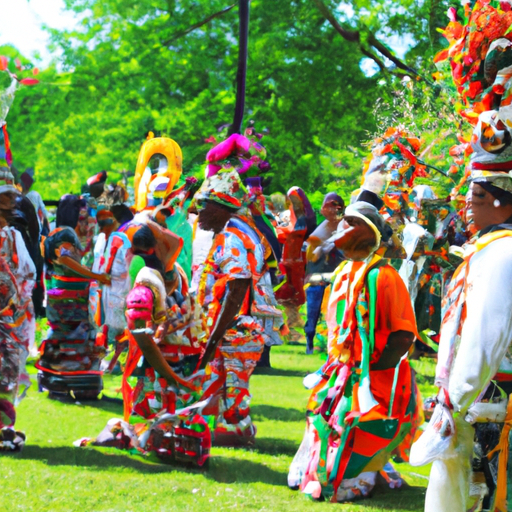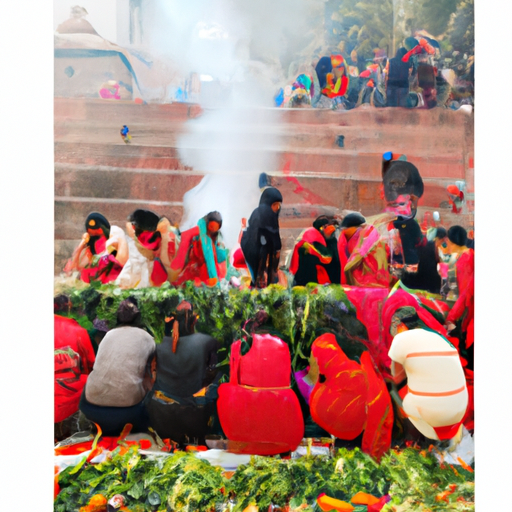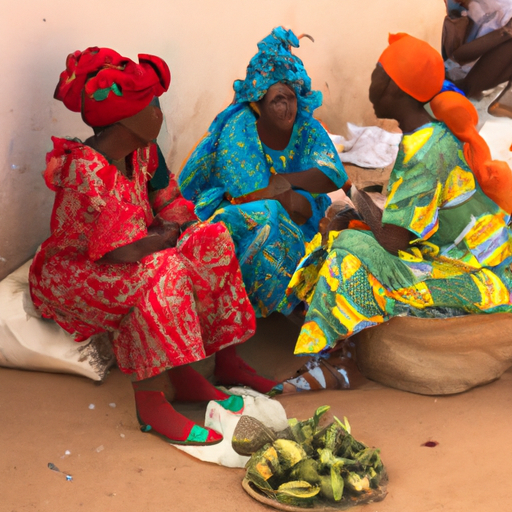10 Surprising Cultural Customs from Around the World: A Fascinating Insight into Different Countries

Traveling is not just about exploring new landscapes and trying different cuisines; it is also an opportunity to immerse oneself in the customs and traditions of different cultures. From unusual greetings to peculiar festivals, the world is filled with surprising cultural customs that can leave tourists in awe. Here are ten fascinating cultural customs from around the world that provide a unique insight into various countries.
1. Throwing Tomatoes at La Tomatina, Spain: Imagine streets flooded with red tomato juice, and people engaged in a massive food fight. La Tomatina is an annual festival held in Buñol, Spain, where thousands of locals and tourists gather to pelt each other with tomatoes. This peculiar custom began as an impromptu event in the mid-1940s and has become a vibrant tradition ever since.
2. The Maasai Jumping Dance, Kenya: The Maasai people of Kenya are renowned for their unique jumping dance. During special occasions or tribal ceremonies, Maasai warriors jump as high as possible, showcasing their strength, agility, and endurance. This dance is not just a form of celebration but also a way to attract potential partners.
3. The Thai Wai, Thailand: In Thailand, the traditional greeting called the 'wai' is performed by pressing the palms together in a prayer-like gesture and lowering the head slightly. The wai is not only used to say hello but is also used to show respect, express gratitude, and apologize. The level at which the hands are held indicates the social status of the person offering the greeting.

4. Carrying an Umbrella for the Sun, India: In certain regions of India, it is considered bad luck to be exposed to direct sunlight during a wedding ceremony. To counter this belief, a unique custom involves a relative of the bride holding a colorful umbrella to shield her from the sun's rays. This tradition not only protects the bride but also adds a touch of elegance and grandeur to the occasion.
5. Throwing Coins at the Trevi Fountain, Italy: As one of Rome's most famous landmarks, the Trevi Fountain attracts tourists from around the world. A fascinating custom associated with this fountain is throwing coins over your shoulder into the water while making a wish. It is believed that if done correctly, this ritual will ensure a return to Rome in the future.
6. The Japanese Tea Ceremony, Japan: Known for its precision and grace, the Japanese tea ceremony, or Chanoyu, is a centuries-old tradition. It involves the ceremonial preparation and presentation of matcha (powdered green tea) in a calm and meditative manner. The tea ceremony is not simply about enjoying a beverage; it is regarded as an art form that reflects harmony, respect, and tranquility.
7. Jíbaro Hat Tipping, Ecuador: In Ecuador's Andean region, the traditional 'jíbaro' hat is not just a fashion choice but also carries a unique cultural meaning. If an individual greets you by tipping their hat, it indicates respect and politeness. Moreover, if someone touches the crown of their jíbaro hat, they are genui?

nely praising or congratulating you.
8. The Running of the Bulls, Spain: Held annually in Pamplona, Spain, the Running of the Bulls is undoubtedly one of the world's most thrilling and adrenaline-filled events. As part of the San Fermín festival, brave individuals dash through the streets ahead of charging bulls. This centuries-old tradition is exhilarating while also carrying a symbolic meaning of risk-taking and bravery.
9. Celebrating Diwali, India: Diwali, also known as the Festival of Lights, is the biggest and most important Hindu festival in India. It symbolizes the victory of light over darkness and good over evil. During Diwali, towns and cities are illuminated with colorful lights, fireworks light up the night sky, and families exchange gifts and sweets. It is a feast for the senses and a remarkable cultural experience.
10. Spitting on the Bride, Kenya: In certain indigenous communities in Kenya, when a Maasai woman gets married, her father spits on her head and breasts to offer blessings and protection. Although it may seem unusual from an outside perspective, it is seen as a tradition that safeguards the bride from evil spirits and brings her good fortune in her new life.
These cultural customs serve as a reminder that the world is full of fascinating traditions that vary from one country to another. Embracing these customs and understanding their historical and cultural significance can enhance any traveler's experience. So, if you find yourself exploring a new country, be open-minded and ready to immerse yourself in these surprising and enriching cultural traditions.






